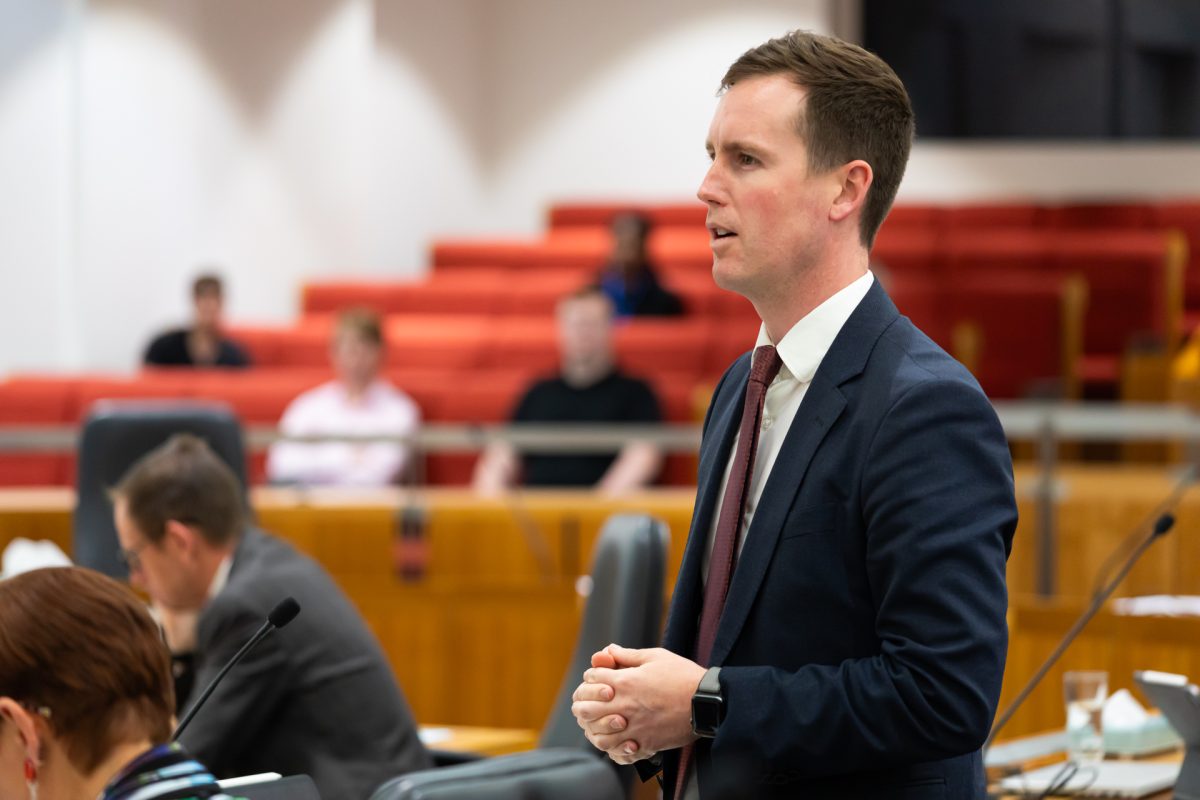
Special Minister of State Chris Steel: the project raised serious questions about the management, capability and accountability of government ICT projects. Photo: Michelle Kroll.
ACT Special Minister of State Chris Steel has apologised for the botched program to build a universal payroll and human resources system for the ACT Public Service that cost taxpayers more than $77 million before the government cut its losses.
Mr Steel told the Legislative Assembly on Tuesday (6 February) that the ill-fated Human Resource Information Management System (HRIMS) Program had multiple failings at all levels, as detailed in a damning ACT Auditor-General’s report last year.
“Today, on behalf of the government, I apologise to the community for the failures of this ICT program,” he said.
“The government must improve and do better to manage future ICT projects in the Territory, and I want to assure Canberrans that we are addressing the clear lessons learned from this program.”
Mr Steel said the HRIMS project raised serious questions about the management, capability and accountability of government ICT projects.
He tabled the government’s response to the Auditor-General’s report, which also drew on three reviews the government had already commissioned.
He said the program faced a range of avoidable and unavoidable challenges, its scale and complexity was underestimated and officials were diverted to other work during the COVID-19 pandemic.
Mr Steel defended the decision to walk away from the program, saying it would save an estimated $140 million needed to complete it.
Instead, the government would upgrade existing payroll and human resource systems and develop a new time and attendance system at less risk and a lower cost to the Territory.
The new payroll capability and human resource management (PC HRM) program would have better project management, governance, and procedures to deliver an effective and reliable HR system, Mr Steel said.
“Upgrades to the existing systems will address the challenges currently faced and reduce risks for the project by reducing the need for heavy customisation,” he said.
“This is now possible due to the evolution of the existing HR and Payroll software, changes to business processes, and extensive knowledge gained through reviews of the HRIMS Project.”
Mr Steel said more work would now be required to scope realistic options, understand business practices better, and ensure better risk and data analysis.
There would also be clearer roles and responsibilities for everyone involved in an ICT project, including identifying a responsible business owner who was ultimately responsible for ensuring the project met expected business outcomes, resolved program issues and risks, and controlled and prioritised scope or change requests throughout the program.
Mr Steel said the new program would be set up with the right timelines, the right understanding of the opportunities and limitations of the technology and consider whole-of-government priorities for ICT investment.
The Deputy Director-General of the new Office of Industrial Relations and Workforce Strategy would be the responsible Business Outcome Owner for the new project and be supported by the Chief Digital Officer and the Under Treasurer to make the right strategic and whole-of-government decisions needed in delivering the program.
A Program Board, with clear terms of reference and clear responsibilities for each member, would drive the program, supported by an independent external member with experience in large and complex HR projects.
Mr Steel said that under changes through the procurement reform process, the project board and the business outcome owner would receive better contract advice as they prepared an approach to market.
In the coming year, more dedicated multi-disciplinary teams will be created to manage complex projects, as well as developing better guidance on project reporting and how to best make digital investments.
“The government’s response to this report shows that we are serious about applying lessons we have learned, both to the new PC HRM program and to all future ICT projects the ACT Government undertakes,” Mr Steel said.
Original Article published by Ian Bushnell on Riotact.











